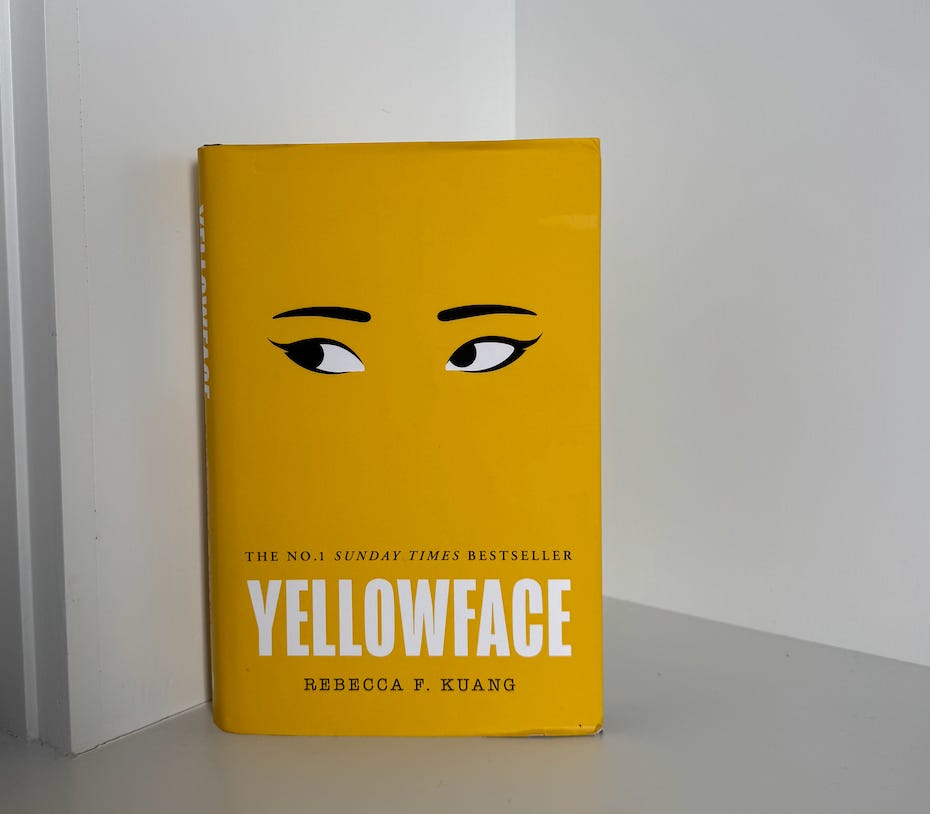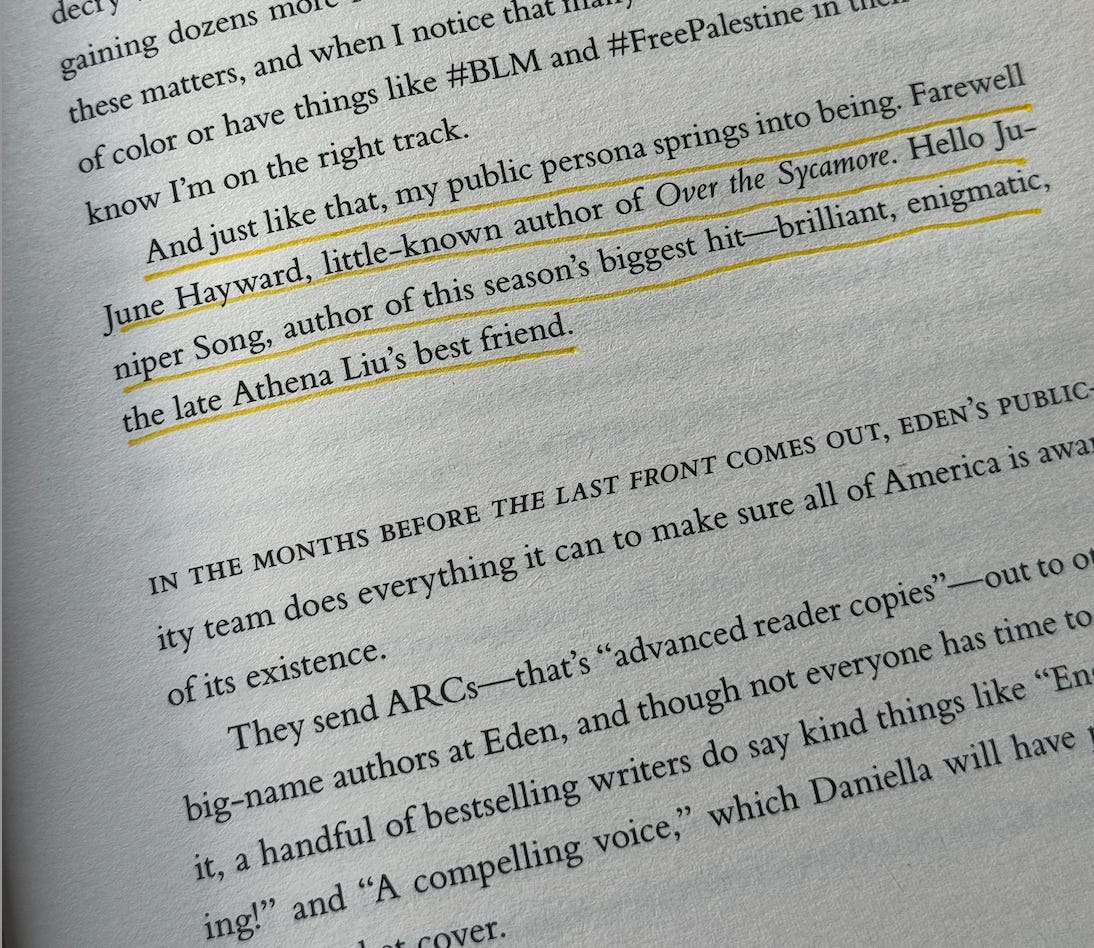Yellowface

Reading Yellowface for the second time only confirmed R.F. Kuang’s brilliance. At just 26 years old, she published Yellowface, building an impressive bibliography that includes The Poppy War trilogy and Babel. I’m determined to read the acclaimed Babel before the end of the year, but for my book club last month, I knew Yellowface was the right selection.
If you don’t already know, Yellowface follows the jealous, competitive, and wildly entertaining dynamic between June Hayward and Athena Liu, classmates and emerging writers in the publishing world. However, Athena quickly eclipses June in success, leaving June envious and desperate.
Then the unthinkable happens: not just Athena’s tragic death, but June witnessing it, calling for help, and then sneaking into Athena’s office to steal two unpublished manuscripts. Yellowface really begins when June, having edited the manuscripts, submits one to her agent as her own.
On first read, I interpreted the novel as a nuanced exploration of the boundary between cultural appropriation and cultural appreciation. June’s first stolen manuscript is historical fiction about the unsung contributions of Chinese workers during World War I. She anticipates skepticism: “Why would a white woman write this story?” So she heavily researches the topic and prepares personal anecdotes, including having “a close friendship” with her Chinese friend Athena Liu.
I saw Yellowface as asking: who gets to tell which stories? Must you be descended from the people you write about?
However, after reading Yellowface a second time, as well as listening to an excellent book club discussion, I believe the novel explores even deeper issues:

Point 1: June is only half the problem.
Yes, June’s theft is wrong, but the novel is also indicting the institutions that enable her. From the moment June submits the manuscript, you’d expect questions about its origins. Yet instead of probing, June’s publishing team reshapes her identity to sell the book. June Hayward is rebranded as Juniper Song, a more racially ambiguous name. June takes new headshots that make her appear tan, and she’s coached to ignore all critics.
Only Candice, among the staff, openly questions this repositioning, but her concern is labeled as aggression, and she’s promptly fired. June’s privilege and the support of her team allow the book and her new persona to soar. Even when June gets #canceled online, her sales double, and she receives a bonus.
And for a time, this works. It’s important to remember that June’s downfall doesn’t come from moral outrage from the public or even her publishing team, but from her own guilt and missteps.
Point 2: Athena Steals Too.
Kuang doesn’t let Athena off easy. Flashbacks reveal that Athena also engaged in creative theft: she dictated a story from an Asian war veteran and turned it into her own, and her ex, Geoff, heavily accuses Athena of initiating couple fights in order to turn them into fictional short stories. The deepest wound, though, was in college— when June confided in Athena after being raped, only for Athena to publish that story in the Yale magazine. June is crushed and never confronts Athena, but the betrayal haunts her and adds clarity to the swiftness with which June steals from Athena after her death.
Through this complexity, Kuang invites readers to question our definitions of theft. Both June and Athena are stealing from others, but is one theft worse than the other, given the racial factor?
Point 3: Kuang as Appropriator.
In an NPR interview, Kuang defends the idea that fiction should allow writers to step into perspectives unlike their own, “even if it’s messy”. She intentionally inverted expectations by writing from the perspective of a white woman, begging the question, is it “okay” that she is writing this story? Is it fair for a non-white person to assume that a white person could be filled with so much jealousy of marginalized voices?
In my opinion, the answer is yes. As my mom put it: “We all know a June”. But could someone argue that Kuang is committing the exact crime she’s accusing June and Athena of doing? Also yes. There’s no clear answer here, except for the fact that maybe everyone is a thief. But as I mentioned before, Kuang’s books aren’t meant just for reading; they’re meant to be discussed.
In the end, Yellowface is less a morality tale about a single bad actor and more a satire of the publishing ecosystem that enables her. By layering June’s self-delusion over Athena’s own ethical lapses, the novel becomes an uncomfortable mirror that asks us what we would justify in pursuit of success. It’s the kind of book that lingers long after you’ve completed it, not because it resolves a debate, but because it makes you want to keep having it.


